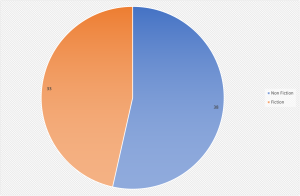I am a day late this week, again because of a Friday full of appointments. That is, for those keeping track (and I know there are many of you), the first time this year that the post has not gone up on Friday. Which if nothing else is a big improvement over 2012.
Get the articles for this week in a Readlist here
Video: “J. Viewz Playing Teardrop with Vegetables”
Technically, he doesn’t use only vegetables, and he doesn’t play the whole song— but still. Using something called a Makey Makey, which allows you to generate tones with anything that conducts electricity even a little bit (like, say, a strawberry), this guy is covering Massive Attack.
j.viewz playing Teardrop with vegetables from j.viewz on Vimeo.
Video: “Thinkin’ Bout You (Frank Ocean Cover)” by Yuna
Yuna is a singer from Kuala Lumpur, although now she apparently lives in LA. Here, she covers Frank Ocean using only her own voice and a loop peddle. I am a sucker for the loop peddle, used this way; watching someone build up a complete piece of music right in front of you, accompanying themselves, is something I find very cool. But even if you’re not as naively struck by that as I am, this is a great version of the song.
Article: “Chasing the Higgs Boson” by Dennis Overbye
The story of the two teams of scientists at CERN who were competing/collaborating to find the Higgs Boson, and the moment when they finally did. Overbye turns the story of looking for “bumps” in data plots into a thriller, with biographical sketches of some of the lead scientists involved and a building sense of tension as the data begin to mount but remain technically inconclusive. The piece also features some good graphics that explain (in layman’s terms) what exactly the Higgs Boson is and why its discovery is so important.
Article: “Anthropology, Inc.” by Graeme Wood
Wood describes the work of the corporate consulting company ReD, which uses ethnographic studies— conducted (at least sometimes) by people with academic training in anthropology— to study consumers in order to better figure what will make them buy or use certain products or services. The company positions itself as an alternative to the many quantitatively-based consulting firms, but its work prompts some of the same queasy feelings— they want to know more and more about people in order to sell them things. Work like this is controversial among academic anthropologists, not surprisingly, but then they are producing more PhDs than their are academic jobs, so… The big concern, of course, is the lack of oversight of this research, in terms of its ethical practices, as well as the fact that the methodology of the fieldwork will be judged by the client, rather than the theoretical standards of anthropologists.
Article: “The Professor, the Bikini Model and the Suitcase Full of Trouble” by Maxine Swann
I predict that, while reading this article, you will alternate between thinking, “Oh, that poor guy; this is so sad” and “Oh my god, what an idiot.” And both are appropriate reactions. A physics professor from North Carolina, believing that he is corresponding online with a Czech bikini model, ends up in jail in Buenos Aires. If that doesn’t pique your interest, I don’t know what will.
Photos: “Photos of the World’s Most Beautiful Abandoned Places”
The title here pretty much says it all. A reminder that, however far we think we are from it, “nature” is always present, ready to take its stuff back.


